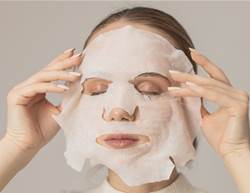Healthy skin is important to all of us. For some, it may even be an obsession, given the average woman spends over $3,600 on beauty products each year. That averages out to approximately $300 a month or $9.80 per day in an effort to achieve that glow. Still, how much do we really know about the body’s largest organ? We asked top dermatologists to tell us the truth behind some common myths.
Q: Should my face feel taut after washing it?
A: “Facial skin should feel supple after you’ve cleansed,” explains dermatologist Dr Mona Gohara. If it feels tight, it means your cleanser has removed the top protective layer of natural oils that creates a barrier to keep water in and harmful microorganisms and irritants out.
These lipids also act as “mortar” around skin cells, providing structural support. Stripping them away while cleansing makes skin drier and compromises its firmness. Instead, use a mild non-soap cleanser labeled “gentle” or “pH neutral” and rinse with lukewarm water to avoid washing away the oils.
Q: Does drinking more water fight wrinkles?
A: There is no solid evidence that drinking water will make your skin look younger, a clinical review concluded. To combat wrinkles and dry skin, you need to trap water on the surface of your skin rather than ingest it, explains Gohara.
Meanwhile, dry air, cold temperatures and harsh soaps cause skin to lose the natural oils that seal in moisture. Lock those oils in by applying a moisturising lotion to your face every morning, Gohara suggests. Try creams containing glycerin, ceramides or hyaluronic acid.
Q: Does hot water open pores and cold water close them?
A: The reality is that pores don’t have muscles to open and close. While hot water may feel good on your skin, it can screw with your skin’s natural, protective oils and lead to over-drying or over production of sebum. Lukewarm water is the best bet to cleanse gently yet effectively.
Q: Is it possible to shrink the size of skin pores?
A: Your natural pore size is genetic, and nothing will change it, Gohara says. Pores can, however, enlarge with age. And poor skincare habits, sun damage and other factors can cause your pores to become clogged with dirt, dead cells or bacteria and appear larger.
Using a facial cleanser that contains charcoal can unclog pores and minimise their appearance, Gohara suggests. “Charcoal is like a Dyson vacuum – it’s able to absorb 1,000 times its particle size, so it literally sucks everything out of pores.”
Skin does get thinner as it ages so remember to treat it very gently. If a product starts to irritate your skin, stop using it immediately.
Q: Can you really get rid of cellulite?
A: Many products claim to smooth out the bumps that accumulate under the skin, but none of them can cure cellulite for good.
“The fix for cellulite remains elusive because there’s no single reason for it – everything from hormones and heredity to sluggish circulation plays a role,” explains dermatologist Dr David Bank. Skin architecture is another key factor. The telltale dimpling is fat trapped by a network of connective tissue; as these fibres weaken with age, cellulite becomes even more pronounced.
“The sad reality is that all sorts of products and technologies have been tried, and eventually the skin will always revert to baseline,” Bank says. There are treatments that can help lessen the appearance, including manual lymph drainage (a light form of massage that stimulates lymph flow). A balanced diet and regular exercise will also help maintain healthy body fat levels.










